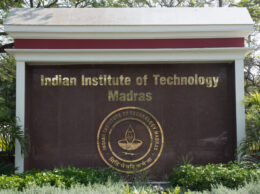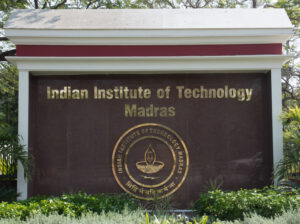During COVID-19 Pandemic, Ministry of Education has held several consultations with the states and UTs at various levels and taken many initiatives to ensure that the school going students don’t lag behind in their studies during COVID-19 pandemic which include the following:
PM eVIDYA:
A comprehensive initiative called PM eVIDYAhas been initiated which unifies all efforts related to digital/online/on-air education to enable multi-mode access to education. The initiative includes:
- DIKSHA (Digital Infrastructure for Knowledge Sharing)
DIKSHA is the national platform for school education available for all states and the central government for grades 1 to 12. It can be accessed through a web-portal and mobile application. It provides access to a large number of curriculums linked e-content through several use cases and solutions such as QR coded Energized Textbooks (ETBs), courses for teachers, quizzes and others. It is the ‘one nation; one digital platform’ for school education.
In April, 2020 VidyaDaan was launched as a national content contribution program that leverages the DIKSHA platform and tools to seek and allow contribution/donation of e-learning resources for school education by educational bodies, private bodies, and individual experts.
- Access through TV channels- SwayamPrabha TV Channels
SwayamPrabha DTH channels are meant to support and reach those who do not have access to the internet. 32 channels are devoted to telecast high quality educational programmes.
- Swayam MOOCs for open schools and pre-service education:
Online MOOC courses relating to NIOS (grades 9 to 12 of open schooling) are uploaded on SWAYAM portal; around 92 courses have started and 1.5 crore students are enrolled. Students and teachers can access all the course modules – text, videos and assessment questions etc. through SWAYAM.
- Extensive use of Radio, Community radio and Podcasts
Radio broadcasting is being used for children in remote areas who are not online. 289 Community Radio Stations have also been used to broadcast content for NIOS for grades 9 to 12. A Podcast called ShikshaVani is being effectively used by learners of grades 9 to12. It contains over 430 pieces of audio content for all subjects of grades 1 to 12.
- For the differently-abled
One DTH channel is being operated specifically for hearing impaired students in sign language. For visually and hearing impaired students, study material has been developed in Digitally Accessible Information System (DAISY) and in sign language; both are available on NIOS website/ YouTube.
- E-textbooks
The e-textbooks can be accessed using e-Pathshala web portal and mobile app (Android, iOS, Windows). More than 600 digital books including 377 e-textbooks (grades 1 to 12) and 3,500 pieces of audio and video content of NCERT are available in the public domain in various languages (Hindi, English, Sanskrit and Urdu).
- National Repository of Open Educational Resources (NROER)
NROER is an open storehouse of e-content. Nearly 17,500 pieces of e-content are available for all grades for various school subjects.
- Rationalisation of Syllabus for Summative Examinations
CBSE has reduced the syllabi only for the purpose of examinations to the extent of thirty percent. This has been done in view of change in the mode of conduct of classroom transaction which is new both for parents and teachers.
Alternative Academic Calendar
A week-wise plan for grades 1 to 12 has been developed in three languages by NCERT. It consists of interesting activities and challenges related to topics/themes in the syllabus. It maps the topics/themes with the learning outcomes & facilitates teachers/parents to assess the progress in students’ learning in a variety of ways. Also links for e-resources have been provided for those learners who have access to the internet.
PRAGYATA Guidelines on Digital Education
These guidelines have been developed with a focus on online/blended/digital education for students who are presently at home due to the closure of schools. The guidelines recommendscreentimefordifferentcategoriesofstudents. It also provides sufficient Do’s and Don’ts regarding ergonomics and cyber safety. There are infographics on how to use devices and have proper posture during the online classes. The guidelines can be accessed at:
https://mhrd.gov.in/sites/upload_files/mhrd/files/pragyata-guidelines_0.pdf
MANODARPAN for psychosocial support
‘MANODARPAN’ covers a wide range of activities to provide psychosocial support to students, teachers and families for Mental Health and Emotional Wellbeing during the COVID outbreak and beyond.
Learning Enhancement Guidelines for continuous learning :
In order to enable online education benefit to the students of every category, the following Learning Enhancement Guidelines have been issued on 19 August 2020:
- Learning enhancement during COVID-19 for students without digital devices.
- Learning enhancement during COVID-19 for students with limited access to digital devices.
- Learning enhancement during COVID-19 for students with digital devices.
The guidelines can be accessed at:
https://www.mhrd.gov.in/sites/upload_filehs/mhrd/files/Learning_Enhancement_0.pdf
To mitigate the effect of covid-19, Department of School Education and Literacy have allocated Rs. 818.17 crore to promote online learning through digital initiatives, Rs. 267.86 crore for online teacher training to ensure continuous professional development of teachers.
Internet access under BHARAT NET scheme has been made available to Govt institutions and to improve the internet connectivity in rural areas. The CSC e-Governance Services India Ltd (CSC-SPV) of Ministry of Electronics and Information Technology (MEITY) has been assigned the task of providing Fibre to the Home (FTTH) connectivity to the Government Institutions, including schools. This project is for providing Internet connection to Government schools in respective Gram Panchayats. The state-wise status of digital access in schools is at Annexure.
This information was given by the Union Minister for Human Resource Development, Shri Ramesh Pokhriyal ‘Nishank’ in a written reply in the RajyaSabha today.








